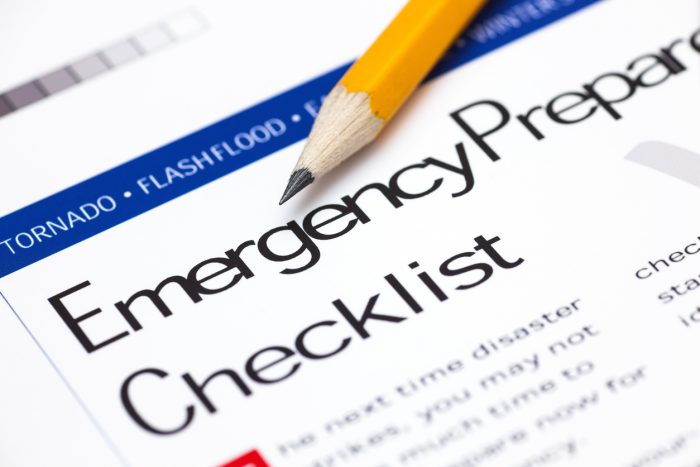Readying Your Family for an Emergency
 Readying Your Family for an Emergency
Readying Your Family for an Emergency
September 21st, 2018 is a day our community won’t soon forget. The stories we’ve heard from those affected by the tornadoes that touched down in the City of Ottawa-Gatineau were nothing short from terrifying; the photos we’ve seen from the storm’s aftermath have been undeniably bone-chilling. It has been a devastating reality that the residents of our nation’s capital weren’t quite ready to face as thousands upon thousands of families were left without power – and, worse – homes. Yet, in the same breath, we have witnessed some incredible acts of heroism and unity after such turmoil. Together, the residents, volunteers, service workers, medical providers, rescuers (the list goes on) of the Ottawa-Gatineau and surrounding areas, have come together to shed some light onto those who have recently experienced such darkness as a result of the storm. Thank you for exemplifying what our community is all about.
As we continue to provide a helpful hand to those who need it the most, we’ve come to realize the importance of preparedness in the event of a natural disaster emergency. Of course, natural disasters often have a mind (and path) of their own: they can often strike without warning, and when they do, it’s seemingly within seconds – resulting in an extensive aftermath. More than 145,000 people across the City were without power for days that followed September’s wreckage, with a vast majority of residents being under-prepared. Understandably so, considering these events were “as bad or worse than those caused by the devastating ice storm in 1998,” according to Hydro Ottawa CEO, Bryce Conrad.
Here are a few ways you can ready your household before, during and after a power outage (or natural disaster) strikes our City and surrounding areas:
- Sign up for local alerts and warning systems – they’re proven to be quite accurate and effective;
- Have spare batteries on hand for flashlights and other alternatives that meet the needs of your family when the power goes out;
- Have enough non-perishable food and water for your entire family – enough that could last days (or weeks);
- Keep mobile phones and other electric equipment charged (wireless chargers are fantastic in a power outage);
- Pre-make ice in your freezer so that you can store food in coolers;
- Keep your gas tanks full in the event you need to evacuate or travel;
- During a power outage, you’ll want to keep freezer and refrigerator doors closed. Doing so will keep refrigerated food cold for about 4 hours, and frozen food frozen for about 48 hours;
- Check on your neighbours, relatives and friends – power grids often work in mysterious ways. If you have power, those 2-streets down may not. Help those who might be in need;
- Disconnect appliances, equipment or electronics to prevent a possible power surge when power is restored;
- Once your power has come back on, throw away any food in your freezer and refrigerator that have been exposed to warmer than usual temperatures for 2+ hours. Remember: when in doubt, throw it out!
Today, more than a dozen charitable and not-for-profit agencies throughout our nation’s capital have banded together to determine how those who have been affected by these horrifying tornados, will receive the help they deserve. Re-building will certainly take time; but together, we can make it happen. For more safety tips before, during and after a power outage – or in the event of another natural disaster emergency – visit Hydro Ottawa’s website.


1723 Carling Avenue
K2A 1C8
Ottawa, Ontario Canada
Office: 613-725-1171
Toll Free: 1-800-307-1545
The trade marks displayed on this site, including CREA®, MLS®, Multiple Listing Service®, and the associated logos and design marks are owned by the Canadian Real Estate Association. REALTOR® is a trade mark of REALTOR® Canada Inc., a corporation owned by Canadian Real Estate Association and the National Association of REALTORS®. Other trade marks may be owned by real estate boards and other third parties. Nothing contained on this site gives any user the right or license to use any trade mark displayed on this site without the express permission of the owner.
powered by WEBKITS
